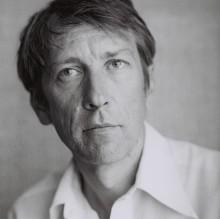Artikel
Tomas Tranströmer, 15 April 1931 – 26 March 2015
Solitary Swedish houses

31 maart 2015
As American poet and critic Stephen Burt writes for NPR, ‘More than most poets, Tranströmer survives translation, since his effects so often come from metaphors, images and situations. Other effects come from silence, from negative space: Few readers object to the brevity of his best-known poems’.
Or as Tranströmer himself writes: ‘No blank space anywhere here’. To read several of Tranströmer's poems in Swedish, English and Dutch, see his Poetry International profile, which also includes an audio recording of ‘Solitary Swedish houses’.
On 26 March, 2015, poet, translator and psychologist Tomas Tranströmer passed away in Stockholm, Sweden.
Tranströmer, who was a three-time guest at the Poetry International Festival in Rotterdam, won the Nobel Prize in Literature in 2011 and was known both as a preeminent poet in Sweden and as a deeply influential and widely read poet abroad. In The New York Times’ obituary for Tranströmer, Bruce Weber writes:
He was a hugely popular figure in his home country – one American critic referred to him as Sweden’s Robert Frost – whose more than 15 books over nearly six decades were translated into 60 languages. And . . . he was widely admired by English-speaking poets, including his friends Robert Bly, who translated many of his poems, and Seamus Heaney, himself a Nobel laureate in 1995.
Robin Fulton, who translates Tranströmer's poetry into English, observes in The Guardian, ‘Though the dozen or so collections by the Swedish poet Tomas Tranströmer, who has died aged 83, occupy very little space on a bookshelf, the response that they received was enormous’. Fulton adds:
It is hard to see any simple or conclusive explanation for this wide appeal. Some readers have said that his poems are accessible, and so they are – but only up to a point: there are dark currents beneath the surface, and some of his later works are enigmatic. Others admire the way in which they surprise us even after repeated readings, as if they don’t get “used up”. Others are entranced by his metaphors, which often make us see ordinary things not necessarily in a new light, but in a light that we had not noticed before . . .
Tranströmer suffered a stroke in 1990, which left him partially paralyzed; before that, he worked as a psychologist for convicts, drug addicts and juvenile offenders. He continued to write poetry and to play the piano, and the role of music in his writing is one of its most prominent and oft-noted features.
I waken the car
whose windscreen is coated with pollen.
I put on my sunglasses.
The birdsong darkens.
– ‘Morning birds’
whose windscreen is coated with pollen.
I put on my sunglasses.
The birdsong darkens.
– ‘Morning birds’
As American poet and critic Stephen Burt writes for NPR, ‘More than most poets, Tranströmer survives translation, since his effects so often come from metaphors, images and situations. Other effects come from silence, from negative space: Few readers object to the brevity of his best-known poems’.
Or as Tranströmer himself writes: ‘No blank space anywhere here’. To read several of Tranströmer's poems in Swedish, English and Dutch, see his Poetry International profile, which also includes an audio recording of ‘Solitary Swedish houses’.
© Mia You
Sponsors












Partners
LantarenVenster – Verhalenhuis Belvédère

